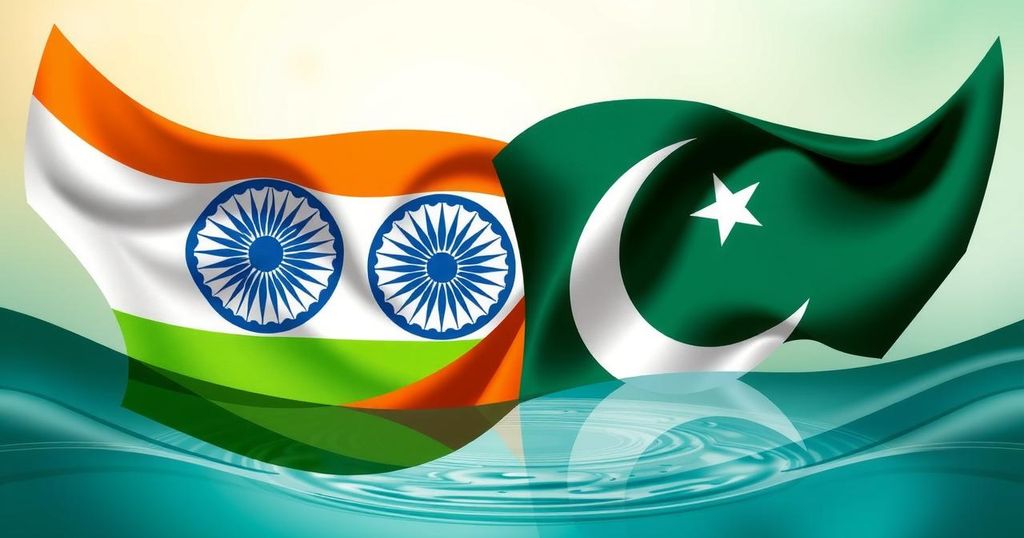Following Sheikh Hasina’s ousting, Pakistan and Bangladesh have strengthened ties driven by mutual anti-India sentiment. Recent meetings between military and political leaders outline a framework for increased collaboration, seeking to address historical grievances and economic issues. Experts caution that historical tensions remain significant obstacles to overcoming their past, despite the potential for improved relations.
Following the recent ousting of Sheikh Hasina from power in Bangladesh, relations between Pakistan and Bangladesh have grown closer, driven by a mutual anti-India sentiment. On a recent visit to Pakistan, Bangladeshi Lieutenant General SM Kamrul Hassan met with Pakistan’s army chief, General Asim Munir, signifying a potential reset in their historically fraught relationship. The Pakistani military designated both countries as “brotherly nations,” suggesting a commitment to enhancing military collaboration and addressing common concerns.
Historically, Pakistan and Bangladesh’s ties have been marred by tension following Bangladesh’s independence in 1971, a result of a brutal war with Pakistan. Under Sheikh Hasina’s lengthy rule, bilateral relations soured further, especially as Hasina’s government received support from India. However, her recent ousting has allowed for a renewed dialogue between Islamabad and Dhaka, marked by high-level visits aimed at strengthening ties.
Pakistani Prime Minister Shehbaz Sharif has engaged with Bangladesh’s interim leader, Muhammad Yunus, during international summits to explore unresolved issues and to reinforce military relations. Bangladesh has urged Pakistan to resolve historical grievances from the 1971 war, stressing the need for a formal resolution to facilitate better future relations. This evolution in diplomacy indicates a significant shift in the geopolitical landscape of South Asia.
Despite this thaw in relations, experts caution against overestimating the significance of recent exchanges. The historical tensions and diverging national interests between Pakistan and Bangladesh remain substantial hurdles. Regional realities dictate that while both nations may seek to recalibrate their foreign policies, Bangladesh is unlikely to adopt a strictly anti-India stance considering its geographical and economic ties with India.
Such evolving dynamics extend beyond Bangladesh and Pakistan to broader geopolitical moves in South Asia, including India’s renewed engagement with Taliban-led Afghanistan. This development complicates Islamabad’s position as it navigates its historical ties with the Taliban, especially amid rising conflicts involving the Tehreek-e-Taliban Pakistan (TTP). The backdrop of these tensions underscores Pakistan’s motivations to forge tighter ties with Bangladesh, as it seeks economic partnerships in light of its slower growth compared to Bangladesh.
The economic landscape presents a unique opportunity for collaboration. Bangladesh has emerged as one of the fastest-growing economies in South Asia, while Pakistan faces significant economic challenges. Trade, historically imbalanced, holds potential for growth if diplomatic relations continue to improve. The renewed interest in intergovernmental cooperation could signify a new chapter of economic collaboration between the two nations in the near future.
The relationship between Pakistan and Bangladesh has been shaped by a complex history, originating from the violent conflict of 1971 when Bangladesh gained independence from Pakistan. Despite the formal acknowledgment of this independence in 1974, the two nations have experienced complicated diplomatic relations, influenced by leadership changes and external alliances. Hasina’s lengthy presidency further strained ties due to her alignment with India, aggravating Bangladesh’s historical grievances against Pakistan. Current shifts following Hasina’s ouster signify an opportunity for both nations to reassess their foreign policies and regional partnerships.
The recent rapprochement between Pakistan and Bangladesh highlights a significant shift influenced by changing political landscapes and mutual concerns over India. While historical tensions persist, the potential for economic and military collaboration marks a new chapter in their relations. Nevertheless, both countries must navigate the implications of their past while responding to regional geopolitical dynamics. The evolving dialogue suggests that greater cooperation may lead to improved bilateral ties, albeit carefully balanced against each nation’s enduring interests with India.
Original Source: www.aljazeera.com






